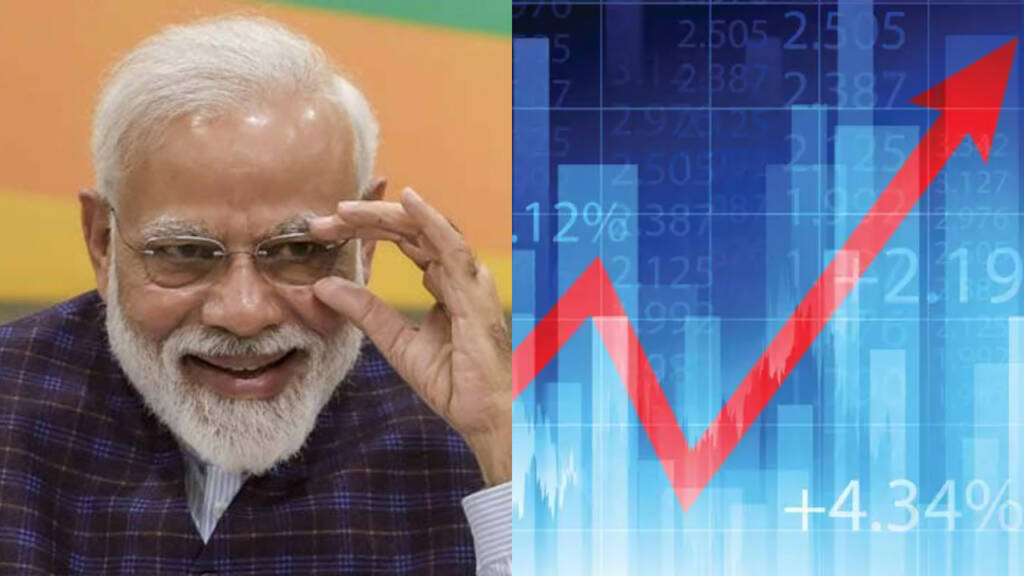The Indian stock market crashed to new low, losing more than one-third of its value in March after the Modi government announced a nationwide lockdown. However, after the government started opening up the country for economic activity in a phased manner, the stock market got back on track and started picking up. Also, the Modi government turned the Coronavirus induced crisis into an opportunity, introducing reforms in the field of Agricultural and Labour markets.
The reformist approach towards the political economy caught the eye of domestic, as well as, foreign investors who poured billions of dollars in the companies registered in the Bombay Stock Exchange (BSE) and National Stock Exchange (NSE).
The valuation of companies like Reliance Industries Limited doubled in the last nine months, from 6 lakh crore rupees to 11.65 lakh crore rupees. The Indian stock markets added around 1.3 trillion dollars (around half of India’s GDP in FY19) in the last nine months, taking the total valuation of Indian stock market to 2.5 trillion dollars- around 90 per cent of India’s GDP in FY19.
Read More: Exit polls 2019: Anticipating PM Modi’s return, stock markets reach a new high
Currently, the market capitalisation of India is the eighth largest after the United States, China, Japan, Hong Kong, the United Kingdom, France, and Canada. As per a report by business daily Livemint, “In 2020, the Indian markets outperformed many other major markets. India’s market capitalisation gains were about 17.4%, one of the highest globally after China’s 48.5%, the US (24%) and Hong Kong (18%).”
However, the penetration of stock market investing in India is still very low and a large part of the investment is from foreign investors. The domestic investors still have a stigma towards the stock markets, the reason why India’s stock market is very low compared to GDP. The countries like the United Kingdom, France, and Canada, which have GDP lower than that of India, have a greater stock market valuation.
The United States, which has a GDP of around 20 trillion dollars, has a stock market valuation of 42 trillion dollars- two times that of its GDP. Similarly, for China, the stock market valuation is around 17 trillion dollars taking Hong Kong into account, which is more than its GDP. The UK, France, and Canada also have market valuation either more than that of GDP or almost equal to that.
The Indian stock market is getting popular among the millennials, especially since the trading of stock became online. The trading of stocks from mobile-to-mobile is becoming dematerialised because it makes trading easier with very little charges.
During the Coronavirus-induced lockdown, India witnessed an exponential rise in the number of dematerialised accounts (used for trade of securities) with almost a million new additions every month.
Startups like Zerodha, which facilitate online trading for retail investors, gained many customers during the lockdown. The surge shows that the millennial investors prefer buying stock over gold, and the shine of gold is diminishing among the new generation. The rise in the number of domestic investors would give Indian companies access to cheap capital in the capital-scarce nation, and this will lead to a surge in capital expenditure.
The economic future looks bright because the preferences of the millennials are more aligned with investing in the stock market, and a pro-active Modi government is facilitating this with a digitalised regulatory framework and economic reforms.
